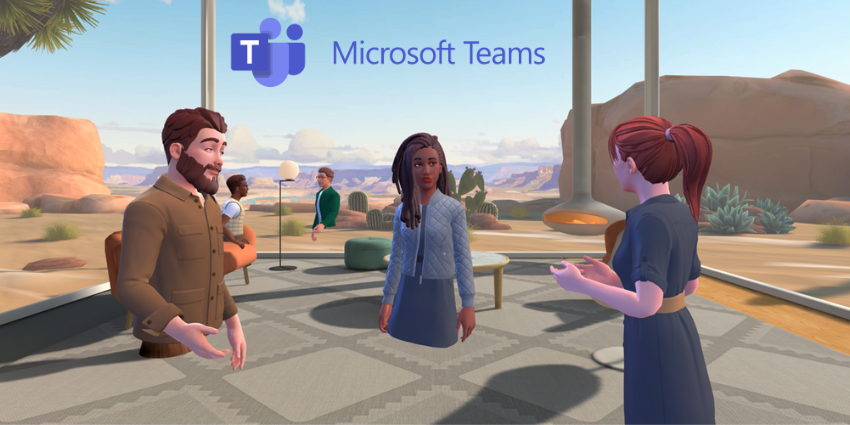What is Metaverse as a Service (MaaS), and what does it mean for the future of the digital world?
The term “Metaverse as a service” looks exciting, but similar to the metaverse itself, it’s something many creators and innovators don’t fully understand. In broad terms, Metaverse as a Service builds on one of the most popular business models today, “software as a service.”
The “as a service” model allows companies to avoid purchasing solutions outright. Instead, companies pay for the solutions they need on a subscription basis. For software as a service, this means paying for access to specific software and solutions each month.
Metaverse as a service combines this flexible purchasing model with the opportunities offered by the metaverse, allowing companies from all landscapes to build their own digital experiences.
Here’s everything you need to know about MaaS.
Demystifying MaaS: Defining the Metaverse
To answer the question “What is Metaverse as a Service?” we first need to define the metaverse. The term “Metaverse” was first introduced in the novel “Snow Crash” by Neal Stephenson. He used the phrase to refer to a science-fiction landscape that combined the real and digital worlds.
The “Metaverse” as we know it today isn’t a single landscape but a multitude of decentralized environments, combining Web 3 technologies like the blockchain and NFTs with artificial intelligence, extended reality, and other tools.
Essentially, metaverses are digital worlds that offer people new ways to immerse themselves in digital content and interact with both computer systems and other people. Within metaverses, users can buy and sell things, connect with friends, create content, and attend events.
Recently, the concept of the “metaverse” has grown increasingly appealing to both consumers and businesses alike. In fact, Accenture found that 71% of executives believe metaverse solutions would benefit their company. As technology has evolved, various major technology vendors have begun investing in their metaverse experiences.
Microsoft is experimenting with tools like the HoloLens and Microsoft Mesh, Apple is breaking into the extended reality world with its Vision Pro headset, and companies like Unity, Varjo, and Unreal offer businesses unique ways to design and manage metaverse experiences.
Of course, the most prominent company frequently associated with the metaverse is Meta, the brand responsible for Quest headsets and virtual environments like Meta Horizon Worlds.
What is Metaverse as a Service?
So, what is Metaverse as a Service?
Simply put, Metaverse as a Service (MaaS) is a solution that allows users to create, host, and control virtual environments and experiences in the “metaverse.” It’s also one of the critical solutions helping to accelerate access to and adoption of metaverse technologies.
After all, while many companies are excited about the opportunities of the Metaverse, few have the resources or technology to build entire Metaverse ecosystems of their own. The complexity and cost of designing a decentralized metaverse environment have led to significant challenges for creators.
Metaverse as a Service solutions aim to minimize these challenges. It allows companies and creators to build virtual worlds using pre-existing architecture and software. These tools don’t allow companies to develop entire Web 3 solutions like Decentraland or Roblox.
However, they ensure businesses can access the current infrastructure in the Metaverse to develop their own experiences. For instance, companies can use MaaS platforms to build virtual training environments for safe and effective learning experiences.
Developers can use MaaS platforms to create marketplaces where participants can buy or sell goods or design digital event experiences. Metaverse as a Service can potentially change how we work and interact with the digital world.
Companies like Accenture have already used metaverse technologies to create digital versions of workplaces where teams can connect and collaborate.
The Use Cases for Metaverse as a Service
Metaverse as a Service solutions give creators access to all the tools they need to create diverse digital experiences without developing a metaverse from scratch. Many companies are already taking advantage of the technology to create platforms for:
Remote work:
By creating digital twins of office buildings and workplaces, companies can provide remote employees with an environment for immersive collaboration. In these environments, employees can build their own avatars, share information, and leverage communication tools like Microsoft Teams.
Healthcare:
From using a metaverse environment to share sensitive data securely to enhancing collaboration between departments, MaaS solutions offer unlimited opportunities to the healthcare sector. Metaverse technologies can help companies create patient support groups, conduct assessments, or interact with patients remotely.
Education:
Metaverse technologies like extended reality have proven highly effective in improving learning outcomes. With MaaS, companies can create virtual learning hubs for students, allowing faculty and students to collaborate anywhere. Plus, companies can use metaverse spaces to simulate training environments that may be dangerous or expensive to create in the real world.
Gaming:
The metaverse has already proven its potential in the gaming world through the success of platforms like Roblox. With Metaverse as a Service, companies can create their own gamified experiences using a flexible environment. They can experiment with play-to-earn gaming, move-to-earn games, and community experiences.
Real Estate
MaaS solutions can transform the real estate sector in a variety of ways. Companies can create metaverse buildings and landscapes to sell to digital collectors. Plus, real estate companies can use metaverse technologies to map sites and create realistic replicas of buildings and architecture. This makes it easy to virtually “showcase” a building to any customer.
Tourism
With metaverse environments, tourism companies can create virtual versions of hotels and accommodations for potential customers to explore. Additionally, employees can leap into the metaverse to assist consumers with their purchases, answering questions and providing guidance.
Marketing
Using metaverse as a service solution, companies can create comprehensive promotional experiences. Businesses can design virtual events product launch experiences, and even develop hubs where customers can access digital content related to specific products.
The Benefits of Metaverse as a Service
Metaverses, in general, have a lot of potential benefits to offer to consumers and businesses alike.
They provide users a unique environment to access information and connect with people worldwide. Metaverses provide creators with ways to monetize their content and reach new audiences. Plus, metaverse environments can enhance collaboration, productivity, and innovation in the business world.
However, as mentioned above, not every company can afford to build its own metaverse. Additionally, not every existing metaverse platform gives companies the solutions they need to create a truly customized or bespoke experience.
The Metaverse as a service model, therefore, offers a host of unique benefits to innovators, such as:
Accessibility
Metaverse as a service reduces the barrier to entry for individuals and businesses looking to create their digital landscape. It offers access to intuitive platforms and tools that streamline the creation, management, and deployment of metaverse experiences.
Customization
Users of metaverse platforms will be able to customize their environments to suit their business and branding goals. They’ll be able to design unique experiences for their users without building everything from scratch and even leverage integrations with existing platforms.
Scalability
Building and scaling a brand-new metaverse would require extensive computing power and investment. With MaaS, companies and developers can access flexible, scalable infrastructure that can adapt to their needs. Like with any “as-a-service” offering, users can change their subscription as their landscape evolves.
Security and Privacy
Most MaaS solutions will come with built-in systems for security and privacy, minimizing the risks involved with designing a metaverse. These platforms will give organizations valuable resources, such as authentication, authorization, and encryption tools.
Cost Effective
A MaaS solution will undoubtedly be more cost-effective than building a new metaverse from scratch. Some vendors offer different packages to suit varying budgets. Plus, creating a metaverse also allows companies to access new monetization options, such as selling digital goods, experiences, or NFTs.
The Problems with Metaverse as a Service
For many, Metaverse as a Service solutions represents the next era of Web 3 development and digital content creation. Even businesses with limited budgets can find their place in the metaverse with MaaS.
However, there are still some potential problems with this model. For instance, there’s the potential risk of vendor lock-in. As the digital landscape evolves, it may become harder for creators to port their MaaS investments to different platforms.
Additionally, while many MaaS solutions may come with access to security and privacy tools, companies must still be cautious about managing data.
Online privacy standards are evolving all the time, and we’re still in the process of developing governance strategies for the metaverse. This could mean companies must quickly alter their metaverse experiences as rules and regulations change.
Examples of Metaverse as a Service
Although Metaverse as a Service solutions is still relatively new to the market, various providers are already getting involved with the landscape. Some of the most popular options available today include:
Lovelace
Lovelace is a cryptocurrency and NFT platform that announced a MaaS offering in October 2021. The company has its own cryptocurrency token (LACE), allowing creators to design their own digital products.
Lovelace offers an as-a-service toolkit that provides developers and users with the technologies necessary to design and sell NFTs, use smart contracts, monetize VR gaming, and more.
Propel MaaS
Known for its plug-and-play development tools for metaverse creators, Propel offers solutions for smart contracts, decentralized finance (DeFi) solutions, and NFT utilities. Propel is, at its heart, serving companies worldwide, a “Blockchain infrastructure provider.”
It gives organizations comprehensive technology stacks they can use to develop applications on decentralized blockchain protocols.
Touchcast
Embracing the no-code approach to development, Touchcast is a 3D and VR events company that leverages Microsoft Azure Cloud. It announced its MaaS offering at the Consumer Electronics Show (CES) 2022, where it launched MCity. Organizations can sign up for a .metaverse domain, providing a secure VR space to build metaverse campuses.
Companies can use Touchcast to create showrooms, virtual events, and other experiences for users in the digital world.
MVB Worlds
MVB Worlds is a social media metaverse platform offering companies tools for VR world-building, decentralized application management, and NFT production. Companies can create marketplaces, stadiums, and virtual events through the platform.
The solution already offers “Meta-Stadiums” where football and soccer fans can watch and interact with sporting games and purchase virtual merch.
MetaScapes
Created to empower creators to build their own digital worlds, MetaScapes gives users four unique worlds to choose from, each with VR and AI features. You can customize your environment to suit your needs using simple tools. Plus, there’s a fantastic avatar creator.
MetaScapes is still in development. In 2023, it released its asset themes and development tools, build-your-own game features, and custom avatar solutions.
The Future of Metaverse as a Service
Metaverse as a Service solutions might still be a novel concept, but demand is increasing. Countless companies have already recognized the value the metaverse can bring to their teams, marketing strategies, processes, and customer service campaigns.
As businesses continue to explore the potential of the metaverse, MaaS platforms will make it easier for organizations to create their own unique experiences. Companies without extensive expertise or unlimited funding can start to participate in the metaverse more easily.
MaaS platforms encourage investment in an experimental new landscape that would otherwise be inaccessible to many creators. Some believe MaaS could even help to drive standardization in the sector. A few companies could be “brokers” to help with infrastructure development.
As we move into the next era of digital immersion, Metaverse as a Service solution will empower everyone to find their place in the virtual world.







